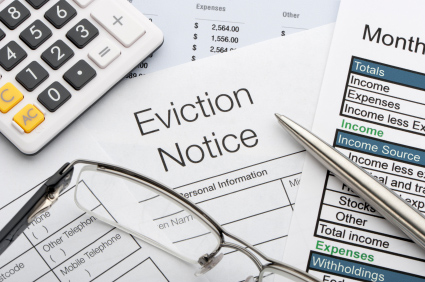Yes No Share to Facebook
Order to Evict in Winter Is Legal and Possible Despite the Common Contrary Urban Myth
Can a Tenant Be Kicked Out in the Wintertime?
The Belief That A Tenant Cannot Be Evicted In Winter Is a Misperception With Some Indirect False Truth.
Understanding Whether a Tenant May Be Evicted During Winter
 There is a common belief that the law forbids eviction of a residential tenant during the winter months. This belief is false. The law governing evictions, being the Residential Tenancies Act, 2006, S.O. 2006, Chapter 17 is without any provisions that expressly forbid an eviction in the winter; however, the Residential Tenancies Act, 2006 does contain section 83 which provides an adjudicator of the Landlord Tenant Board with the discretionary power to delay an eviction. Specifically, section 83 of the Residential Tenancies Act, 2006 states:
There is a common belief that the law forbids eviction of a residential tenant during the winter months. This belief is false. The law governing evictions, being the Residential Tenancies Act, 2006, S.O. 2006, Chapter 17 is without any provisions that expressly forbid an eviction in the winter; however, the Residential Tenancies Act, 2006 does contain section 83 which provides an adjudicator of the Landlord Tenant Board with the discretionary power to delay an eviction. Specifically, section 83 of the Residential Tenancies Act, 2006 states:
83 (1) Upon an application for an order evicting a tenant, the Board may, despite any other provision of this Act or the tenancy agreement,
(a) refuse to grant the application unless satisfied, having regard to all the circumstances, that it would be unfair to refuse; or
(b) order that the enforcement of the eviction order be postponed for a period of time.
(2) If a hearing is held, the Board shall not grant the application unless it has reviewed the circumstances and considered whether or not it should exercise its powers under subsection (1).
(3) Without restricting the generality of subsection (1), the Board shall refuse to grant the application where satisfied that,
(a) the landlord is in serious breach of the landlord’s responsibilities under this Act or of any material covenant in the tenancy agreement;
(b) the reason for the application being brought is that the tenant has complained to a governmental authority of the landlord’s violation of a law dealing with health, safety, housing or maintenance standards;
(c) the reason for the application being brought is that the tenant has attempted to secure or enforce his or her legal rights;
(d) the reason for the application being brought is that the tenant is a member of a tenants’ association or is attempting to organize such an association; or
(e) the reason for the application being brought is that the rental unit is occupied by children and the occupation by the children does not constitute overcrowding.
(4) The Board shall not issue an eviction order in a proceeding regarding termination of a tenancy for the purposes of residential occupation, demolition, conversion to non-residential rental use, renovations or repairs until the landlord has complied with section 48.1, 49.1, 52, 54 or 55, as the case may be.
(5) If a tenant has given a landlord notice under subsection 53 (2) and subsection 54 (2) or (4) applies, the Board shall not issue an eviction order in a proceeding regarding termination of the tenancy until the landlord has compensated the tenant in accordance with subsection 54 (2) or (4), as applicable.
(6) Without restricting the generality of subsections (1) and (2), if a hearing is held in respect of an application under section 69 for an order evicting a tenant based on arrears of rent arising in whole or in part during the period beginning on March 17, 2020 and ending on the prescribed date, in determining whether to exercise its powers under subsection (1) the Board shall consider whether the landlord has attempted to negotiate an agreement with the tenant including terms of payment for the tenant’s arrears.
(7) Subsection (6) applies with respect to any application described in that subsection that,
(a) is made on or after the day subsection 17 (3) of Schedule 4 to the Protecting Tenants and Strengthening Community Housing Act, 2020 comes into force; or
(b) was made before that day and was not finally determined before that day.
(8) For greater certainty, subsection (6) applies whether or not a date has been prescribed for the purposes of that subsection.
Accordingly, the adjudicator may choose to refrain from issuing an Order to Evict during the winter months or may choose to issue an Order to Evict with a delayed eviction date. It seems that whereas an adjudicator may refrain from issuing an Order to Evict because it is wintertime, the urban myth was born that a tenant cannot be evicted during the wintertime. Of course, this is a false truth, meaning a perception based on misunderstanding. The misunderstanding arises when people misinterpret the reason that an adjudicator may refrain from issuing an Order to Evict in the wintertime whereas such a decision is a choice based on a discretion. The adjudicator may choose such a discretion out of concern for the hardship that a wintertime eviction would cause rather than because of any mandate in law.
Summary Comment
The belief that an eviction is illegal in the wintertime is incorrect and based on an urban myth that appears to arise from the perception that because the Landlord Tenant Board may choose to avoid an eviction in the wintertime that the Landlord Tenant Board is unable to issue an Order to evict in the wintertime.

